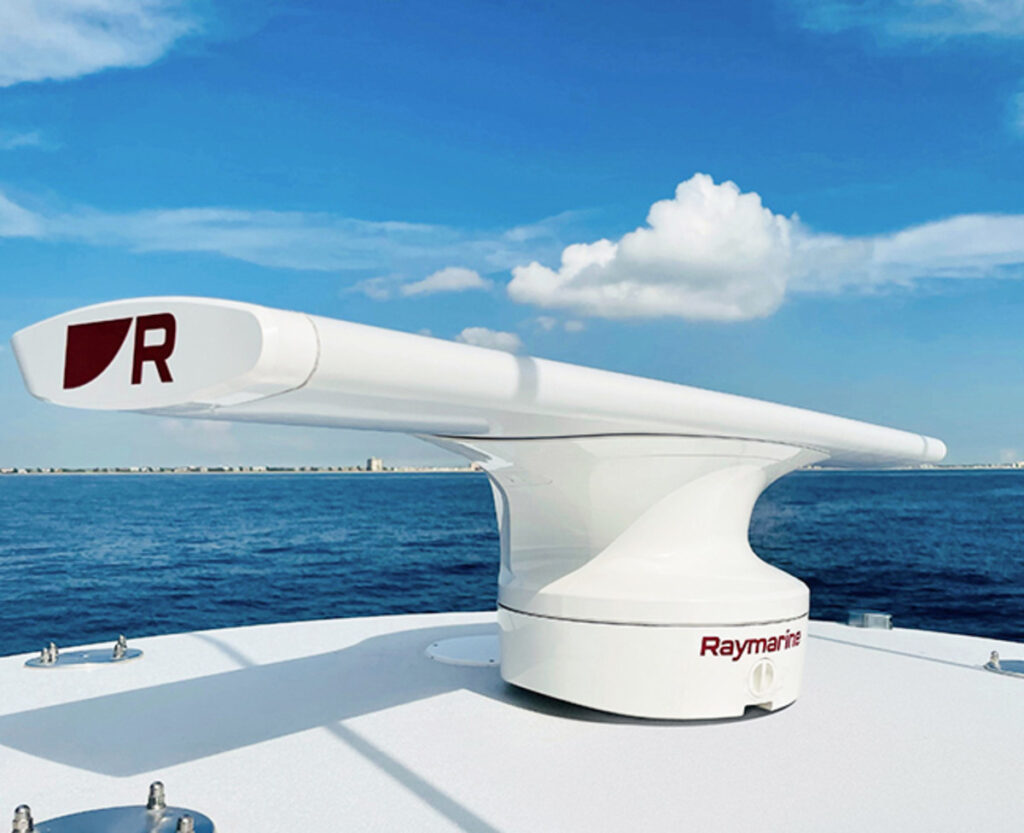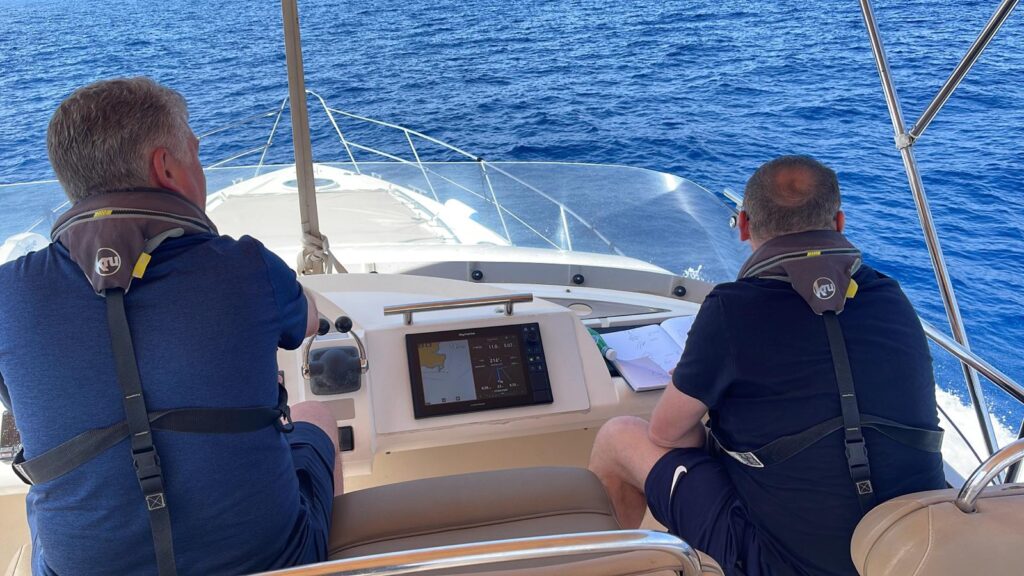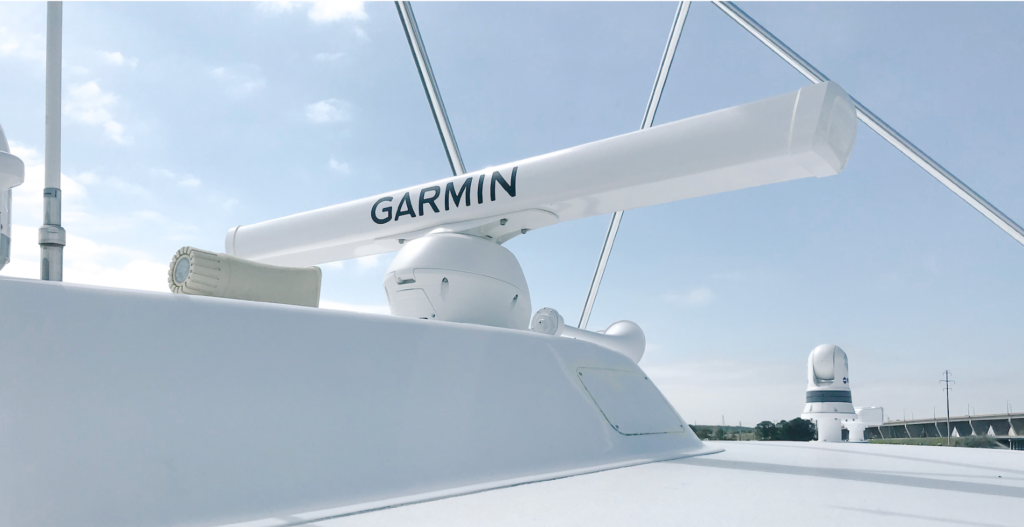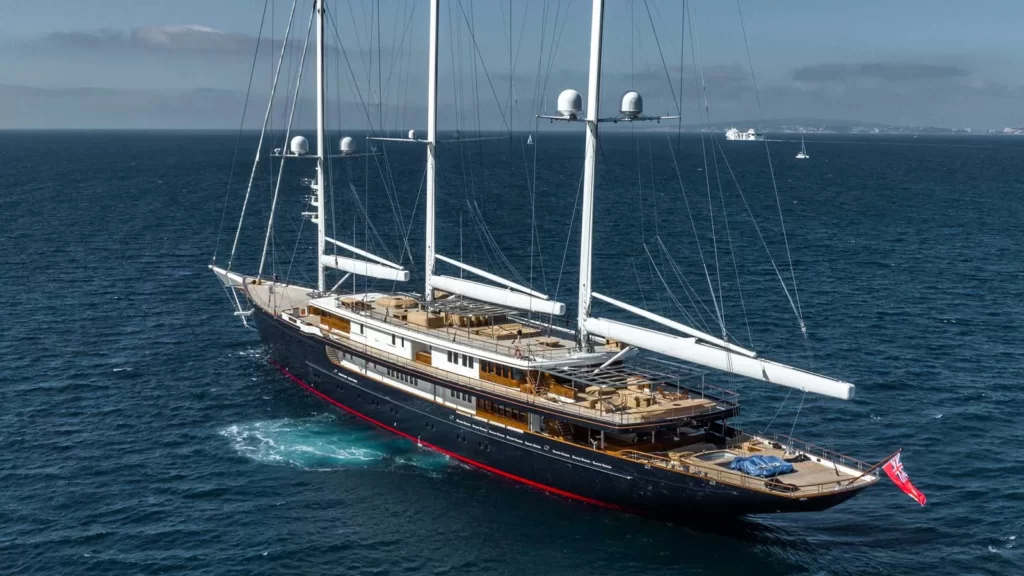When it comes to taking to the sea on small yachts, safe navigation is of paramount importance. Technology can play a vital role in enhancing safety and one such innovation that has revolutionized the maritime industry is small ships (X-Band) radar. In this article I will explore the benefits of X-Band radar on small yachts, highlighting its ability to improve situational awareness, enhance collision avoidance, and provide reliable navigation information. At Deep Blue Sea Training our flagship motor yacht, Deep Blue, is fully equipped with the very latest Raymarine Axiom 3 nav and radar kit with the latest generation Lighthouse 4 software to give students the very best training on the current leading-edge technology.

Enhanced Situational Awareness
X-Band radar has a small footprint on board due to the smaller type, lightweight radar scanners that can be fitted on board, often on the mast of the yacht to give increased radar range. Radar is known for its ability to provide accurate and real-time information about the yacht’s surroundings.
By generating and emitting high-frequency radio waves X-Band radar can detect objects, landmasses, and other vessels in the vicinity, even in low visibility conditions such as fog or darkness making it an ideal tool for safe navigation. This allows yacht owners and crew members to maintain an enhanced situational awareness, enabling them to make informed decisions while navigating through challenging environments.
However to get the full benefits from radar, a proper understanding of how to interpret the picture as it changes is vitally important. Radar has many benefits but also some limitations and a correct understanding of how to use radar is very important for safe and effective use on passages.

Deep Blue on exercises using the Raymarine Axiom 3 with Lighthouse 4, one of the most advanced small boat navigation systems available today
Collision Avoidance
One of the most significant benefits of radar is its role in collision avoidance. By continuously scanning the surrounding area radar can identify potential obstacles, including other boats, buoys, rocks, or even floating debris. The radar system provides early warnings, allowing yacht skippers to take evasive action or alter their course to avoid any potential collisions. This feature is particularly valuable when navigating in crowded waters or areas with heavy marine traffic.
Navigation Accuracy
Small yachts increasingly rely on GPS systems for navigation but these systems may have limitations, particularly in situations where signal interference or disruptions occur. X-Band radar can act as a complementary primary navigation tool, providing real-time information about the yacht’s position, heading, and speed. By cross-referencing this data with GPS information, yacht skippers can obtain a more accurate and reliable picture of their location, reducing the risk of navigational errors.
Increased Confidence and Peace of Mind
By integrating X-Band radar into their small yachts and then learning the techniques to get the best from it, skippers and crew can enjoy increased confidence and peace of mind during their passages. The ability to monitor the surroundings, identify potential hazards, and make informed decisions based on reliable data fosters a sense of security on board. This translates into a safer and more enjoyable sailing experience regardless of the conditions.
Conclusion
X-Band radar is a game-changer for small yacht owners, offering a wide range of benefits that significantly enhance safety and navigation. With its ability to provide enhanced situational awareness, aid in collision avoidance, monitor weather conditions, and improve navigation accuracy, X-Band radar is an invaluable asset for any small yacht. By investing in this advanced technology and then learning how to use all aspects of it thoroughly, yacht owners can sail with confidence, knowing they have a reliable tool to help them navigate through challenging environments and make informed decisions to keep everyone on board safe. Deep Blue Sea Training offers radar training both in class and on the water using the latest advanced navigation and radar technology.


